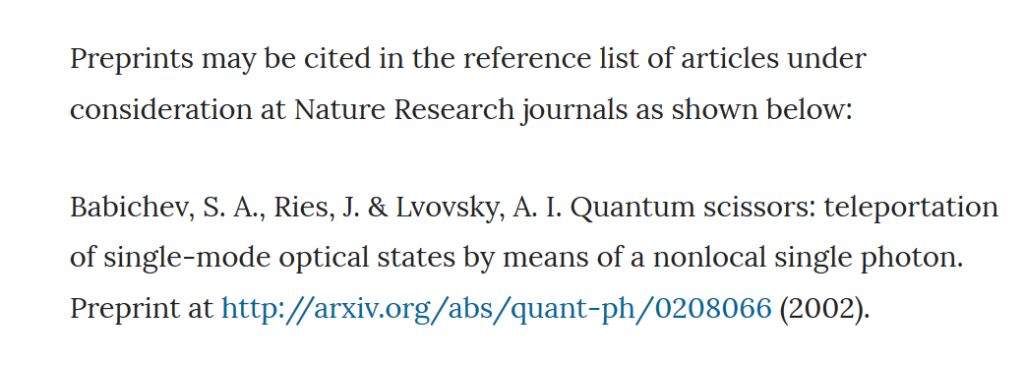Preprints are drafts of academic articles that have not been formally published, i.e., they have not been peer reviewed. Instead, they undergo a basic screening and are usually available on preprint servers within 48 hours of submission. Authors typically upload their papers as preprints to date-stamp any new discoveries and to receive feedback before formally submitting to a journal.
Given that preprints have not been formally peer reviewed, there is some debate as to whether it is appropriate to cite them in other articles. You can read the various sides to this debate see this view and see another. Whether or not it is appropriate is not the subject of this blog. Instead, we focus on whether or not it is allowed and what policies journals have in relation to citing preprints.
So, can you cite a preprint?
In short, yes.
Many influential journals (Nature, Science, The Lancet, and the BMJ) and funders (e.g., the National Institutes of Health, Wellcome Trust, and Cancer Research UK) now explicitly state that they allow the citation of preprints (see Nature‘s policy below).

To the best of my knowledge, no journal explicitly states that preprints cannot be cited.
However, some journals do not look favourably on preprints. The New England Journal of Medicine (N Engl J Med), for example, will automatically reject any new submission that is available as a preprint. This restriction is only in relation to new submissions; they do not have a policy in relation to the citation of preprints. However, it does suggest that the N Engl J Med may not approve of the use of preprints in general. Therefore, it would be wise to handle their citation with caution.
You can do this by clearly indicating in the main text if you cite a preprint (e.g., Smith et al., 2018 PREPRINT), as suggested by the Scholarly Kitchen. This clearly lets the editor and any peer reviewers know that you are citing a preprint, in much the same way as you would a “personal communication”. You could also state it in the cover letter. Any editor would appreciate this level of transparency and awareness of the journal’s views of current trends.
Other journals with restrictions in relation to preprints include the Journal of Clinical Oncology and the Journal of the American Medical Association. You can find a list of journals by preprint policies visit academic journals. Again, these journals do not explicitly state that preprints cannot be cited—to the best of my knowledge no journal does. However, it does suggest they may have concerns about the use of preprints in scholarly communication, and therefore you should use caution.
